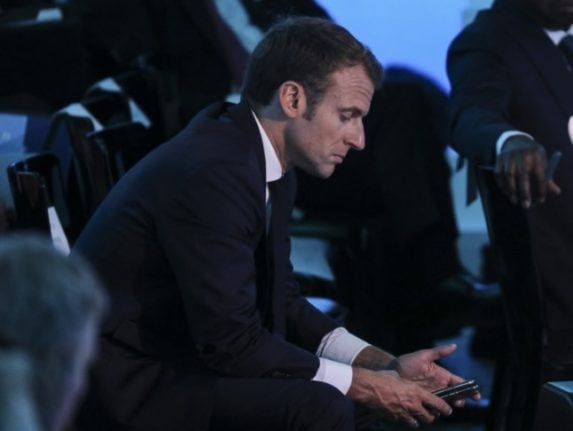Le Monde reported that the mobile phone numbers for Macron and other government members were identified among 50,000 allegedly selected by NSO Group clients for potential surveillance using the Pegasus spyware.
The list of numbers was obtained by Paris-based journalism non-profit Forbidden Stories and human rights group Amnesty International and shared with news organisations.
Pegasus infects mobile phones, allowing operators to extract messages, photos and emails, record calls and secretly activate microphones and cameras.
The details of former Prime Minister Edouard Philippe were also on the list – along with most of the French cabinet in 2019, when it was apparently compiled.
NSO Group denies any wrongdoing. A spokesperson told The Guardian that Macron and French government officials on the list “are not and never have been Pegasus targets”.
“It is not a list of targets or potential targets of NSO’s customers,” they said.
The client seeking to target Macron was an unidentified Moroccan security service, Le Monde reported.
Website Mediapart filed a legal complaint over the spying claims, prompting Prosecutors in Paris to open an investigation into allegations that Moroccan intelligence services used Pegasus to spy on politicians, journalists, and human rights activists in multiple countries, including France.
Investigative newspaper Le Canard Enchaine was also reportedly considering its legal options.
The investigation will examine 10 charges, including whether there was a breach of personal privacy, fraudulent access to personal electronic devices, and criminal association.
A collaborative investigation by Le Monde, The Washington Post, The Guardian, and other media outlets, based on the leaked list of phone numbers, suggested that global espionage using the malware from the NSO Group had been more extensive than previously thought.
The news agencies said they were able to link more than 1,000 numbers on the list with individuals, including more than 600 politicians, government officials and 189 journalists.
An Élysée official said: “If this is proven, it is clearly very serious. All light will be shed on these media revelations. Certain French victims have already announced they will file legal complaints, so judicial investigations will be opened.”
Journalists working for French media companies were allegedly targeted by Moroccan security services, including employees of Le Monde and Agence France-Presse.
Morocco said it ‘never acquired computer software to infiltrate communication devices’.



 Please whitelist us to continue reading.
Please whitelist us to continue reading.
Member comments